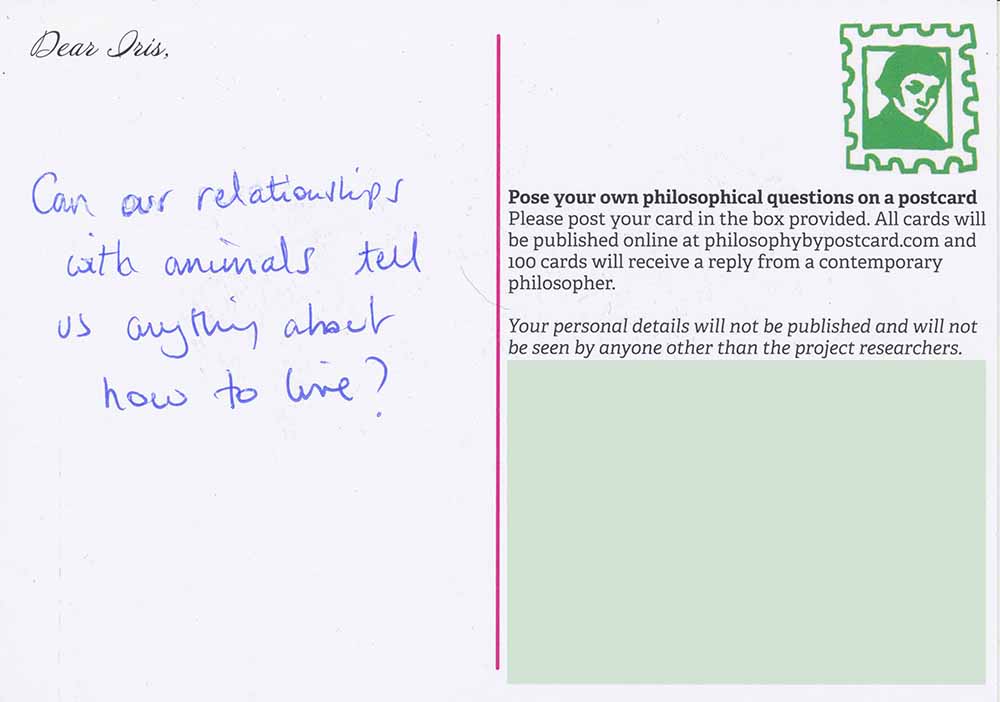Can our relationships with animals tell us anything about how to live?
Dear Marguerite
When I got your postcard to Iris Murdoch last year, I immediately wanted to tell you about how she once saw a kestrel from her window and how she thinks that looking at animals can teach us to appreciate beauty. That way, we learn to love and transcend our “big fat egos”… but then my dog, Miki, nuzzled me and I had to stop. That suggests that our relationships with animals can tell us to live in the moment 😉 – but there is much more than that! I love the fact that you use ‘relationships’ instead of ‘relationship’- as we do have a myriad of different relationships with different animals. When Murdoch relates to a wild animal with admiration and encourages us to really look and love that’s one thing and probably easy for most. But I worry about what we cannot see. Opportunities for just and loving attention to animals often don’t present themselves so easily and gently as a beautiful bird outside your window. Looking for the truth about factory farming or fur is made (and is) difficult. Also, the very concepts in which we dress some animals – like ‘farm animal’ or ‘lab animal’ – limit our vision. Looking at a wild and independent animal comes more naturally than looking at an incarcerated and abused animal for whose conditions I am responsible. Letting go of the egotistical habits that sustain these conditions often hurts.
Indeed, letting go hurts. I only got back to writing this after Miki has died. Watching her play and, actually, the way she looked at me taught me the difference between being ‘alive’ and being ‘full of life’. And I wish more people had relationships with animals who told – or showed – them that.
All the best & thanks again for your postcard!
Mara 27.1.20
Mara-Daria Cojocaru
Munich School of Philosophy, Germany
Website
I have come across Iris Murdoch as part of the Wartime Quartet. What I like about her is the way in which she unites philosophy and literature in her person, and how her thinking allows to oppose mainstream moral philosophy. I am inspired by her idea of and emphasis on moral vision, and by her attention to detail and context. As something like an ex-Platonist, I am not so sure that I can bring myself to be convinced by all of her mature moral philosophy, but I remain certainly fascinated.



